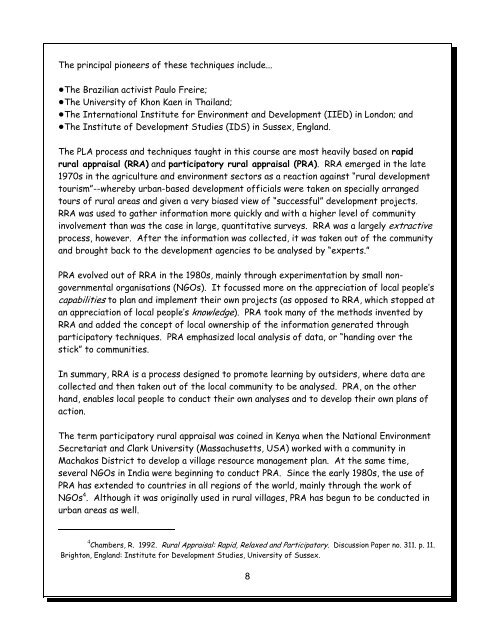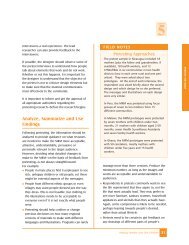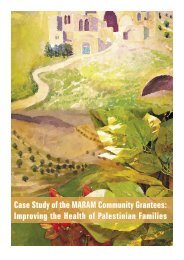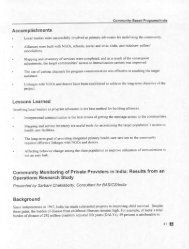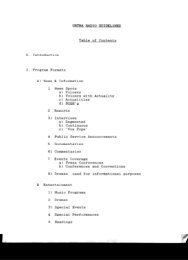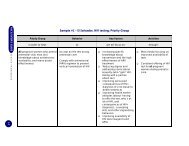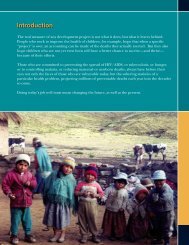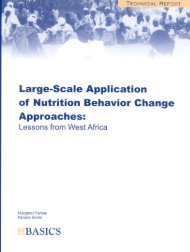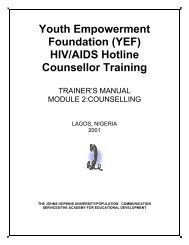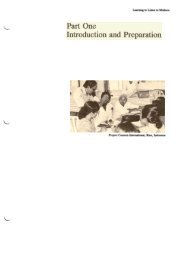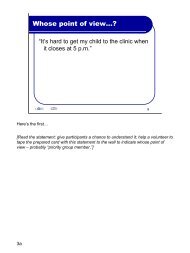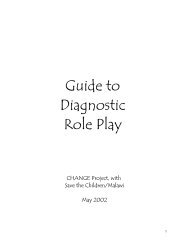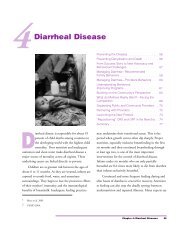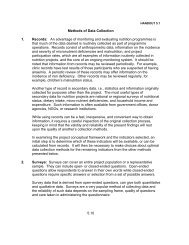Participatory Techniques For Community-Based Program ...
Participatory Techniques For Community-Based Program ...
Participatory Techniques For Community-Based Program ...
You also want an ePaper? Increase the reach of your titles
YUMPU automatically turns print PDFs into web optimized ePapers that Google loves.
The principal pioneers of these techniques include...<br />
!The Brazilian activist Paulo Freire;<br />
!The University of Khon Kaen in Thailand;<br />
!The International Institute for Environment and Development (IIED) in London; and<br />
!The Institute of Development Studies (IDS) in Sussex, England.<br />
The PLA process and techniques taught in this course are most heavily based on rapid<br />
rural appraisal (RRA) and participatory rural appraisal (PRA). RRA emerged in the late<br />
1970s in the agriculture and environment sectors as a reaction against “rural development<br />
tourism”--whereby urban-based development officials were taken on specially arranged<br />
tours of rural areas and given a very biased view of “successful” development projects.<br />
RRA was used to gather information more quickly and with a higher level of community<br />
involvement than was the case in large, quantitative surveys. RRA was a largely extractive<br />
process, however. After the information was collected, it was taken out of the community<br />
and brought back to the development agencies to be analysed by “experts.”<br />
PRA evolved out of RRA in the 1980s, mainly through experimentation by small nongovernmental<br />
organisations (NGOs). It focussed more on the appreciation of local people’s<br />
capabilities to plan and implement their own projects (as opposed to RRA, which stopped at<br />
an appreciation of local people’s knowledge). PRA took many of the methods invented by<br />
RRA and added the concept of local ownership of the information generated through<br />
participatory techniques. PRA emphasized local analysis of data, or “handing over the<br />
stick” to communities.<br />
In summary, RRA is a process designed to promote learning by outsiders, where data are<br />
collected and then taken out of the local community to be analysed. PRA, on the other<br />
hand, enables local people to conduct their own analyses and to develop their own plans of<br />
action.<br />
The term participatory rural appraisal was coined in Kenya when the National Environment<br />
Secretariat and Clark University (Massachusetts, USA) worked with a community in<br />
Machakos District to develop a village resource management plan. At the same time,<br />
several NGOs in India were beginning to conduct PRA. Since the early 1980s, the use of<br />
PRA has extended to countries in all regions of the world, mainly through the work of<br />
NGOs 4 . Although it was originally used in rural villages, PRA has begun to be conducted in<br />
urban areas as well.<br />
4 Chambers, R. 1992. Rural Appraisal: Rapid, Relaxed and <strong>Participatory</strong>. Discussion Paper no. 311. p. 11.<br />
Brighton, England: Institute for Development Studies, University of Sussex.<br />
8


